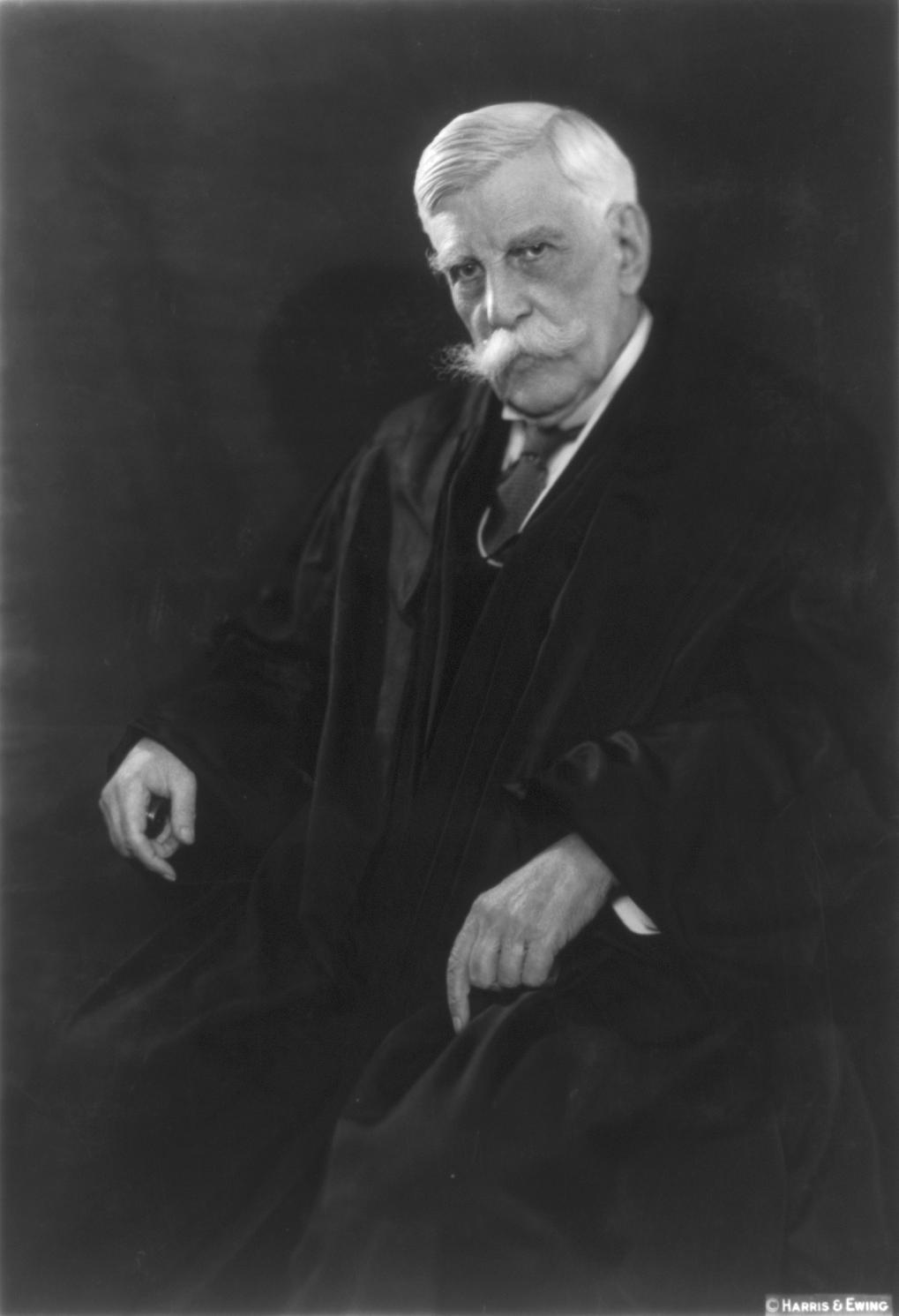Oliver Wendell Holmes Jr. najznámejšie citáty
Oliver Wendell Holmes Jr.: Citáty v angličtine
“The character of every act depends upon the circumstances in which it is done.”
Schenck v. United States, 249 U.S. 47, 52 (3 March 1919).
1910s
Schenck v. United States, 249 U.S. 47, 52 (3 March 1919).
1910s
“Certitude is not the test of certainty. We have been cocksure of many things that were not so.”
1910s, "Natural Law", 32 Harvard Law Review 40, 41 (1918)
"The Path of the Law," Address to the Supreme Judicial Court of Massachusetts at the dedication of the new hall of the Boston University School of Law (8 January 1897), published in Harvard Law Review, Vol. 10 (25 March 1897).
1890s
250 U.S. at 630.
1910s, Abrams v. United States, 250 U.S. 616 (1919)
“Eloquence may set fire to reason.”
Gitlow v. People of New York, 268 U.S. 652 (1925) (dissenting).
1920s
1910s, "Natural Law", 32 Harvard Law Review 40, 41 (1918)
“Pretty much all the honest truth-telling there is in the world is done by children.”
A paraphrase of Oliver Wendell Holmes, Sr., in "The Poet at the Breakfast-Table" in The Atlantic Monthly Vol. 29 (1872), p. 231: "I like children, — he said to me one day at table. — I like 'em, and I respect 'em. Pretty much all the honest truth-telling there is in the world is done by them".
Misattributed
“Young man, the secret of my success is that at an early age I discovered that I was not God.”
On his 90th birthday to a journalist (8 March 1931), as quoted in Information 2000: Library and Information Services for the 21st Century, Vol. 1991, Part 2 (1992) by the U.S. National Commission on Libraries and Information Science, p. 272.
1930s
Writing for the Court, New Jersey v. New York, et al., 283 U.S. 336, 342 (1931).
1930s
1880s, In Our Youth Our Hearts Were Touched With Fire (1884)
Northern Securities Co. v. United States, 193 U.S. 197, 400-401 (1904).
1900s
Oliver Wendell Holmes, Jr., dissenting, Adkins, et al., Constituting the Minimum Wage Board of the District of Columbia, v. Children's Hospital of the District of Columbia; Same v. Lyons, 261 U.S. 569–70 (1923).
1920s
250 U.S. 616; 630.
1910s, Abrams v. United States, 250 U.S. 616 (1919)
1910s, "Law and the Court" (1913)
United States v. Schwimmer, 279 U.S. 644 (1929) (Holmes, J., dissenting).
1920s
“Certainty generally is illusion, and repose is not the destiny of man.”
1890s, The Path of the Law (1897)
"Common Carriers and the Common Law", 13 Am. Law Rev. 608, 630 (1879).
1870s
Blinn v. Nelson, 222 U.S. 1, 7 (1911).
1910s
Writing for the Court, United States v. Wurzbach, 280 U.S. 396, 399 (1930).
1930s
1880s, In Our Youth Our Hearts Were Touched With Fire (1884)
Often given as: A mind that is stretched by a new experience can never go back to its old dimensions.
Or: A mind that is stretched by a new idea can never go back to its old dimensions.
Actually by Oliver Wendell Holmes, Senior, from " Autocrat of the Breakfast Table https://books.google.com/books?id=BoQ3AQAAMAAJ&pg=PA502&dq=%22stretched+by+a+new+idea%22&hl=en&sa=X&ved=0ahUKEwidspn60tTJAhVJ1GMKHbt3Bn0Q6AEIHTAA#v=onepage&q=%22stretched%20by%20a%20new%20idea%22&f=false", originally published in The Atlantic, September 1858.
Misattributed
“To be 70 years young is sometimes far more cheerful and hopeful than to be 40 years old.”
Almost certainly attributable to Oliver Wendell Holmes, Sr., who is, in various sources, credited with having said this in letters to Harriet Beecher Stowe (who turned 70 in 1881) and Julia Ward Howe (who turned 70 in 1889), as well as having made the commented about himself. Holmes, Sr. reached the age of 70 in 1879, while Holmes, Jr. reached that age in 1911, some time after the earliest reports of this quote.
Misattributed
Assertion famously directed at then-President Abraham Lincoln when he came under enemy fire at Fort Stevens during the American Civil War, as quoted in Team of Rivals: The Political Genius of Abraham Lincoln (2005) by Doris Kearns Goodwin, p. 643.
1860s
“The power to tax is not the power to destroy while this Court sits.”
Panhandle Oil Co. v. Mississippi ex rel. Knox http://caselaw.lp.findlaw.com/cgi-bin/getcase.pl?friend=oyez&court=us&vol=277&invol=218, 277 U.S. 233 (1928).
1920s
“Lawyers spend their professional careers shoveling smoke.”
Attributed in Watergate and the White House, Volumes 1-2 (1973) by Edward W. Knappman, p. 100; this has also become paraphrased as "Lawyers spend a great deal of their time shoveling smoke".
Attributions
